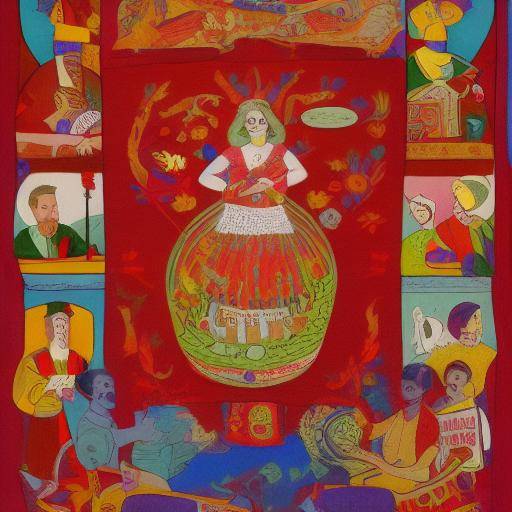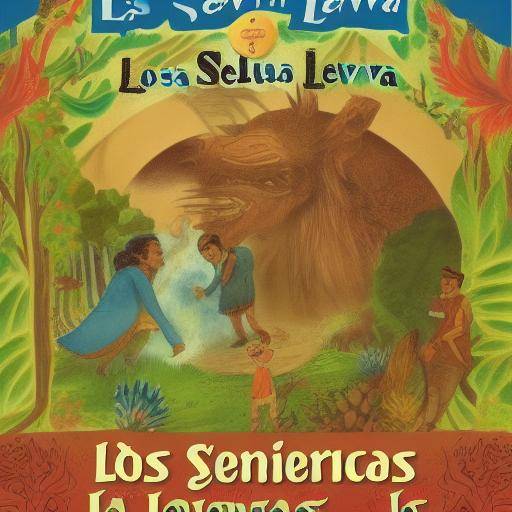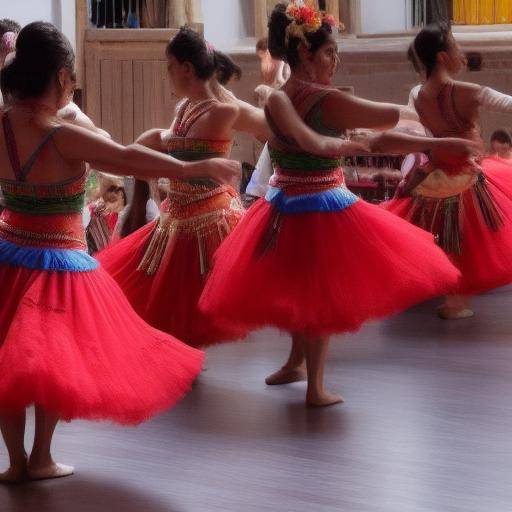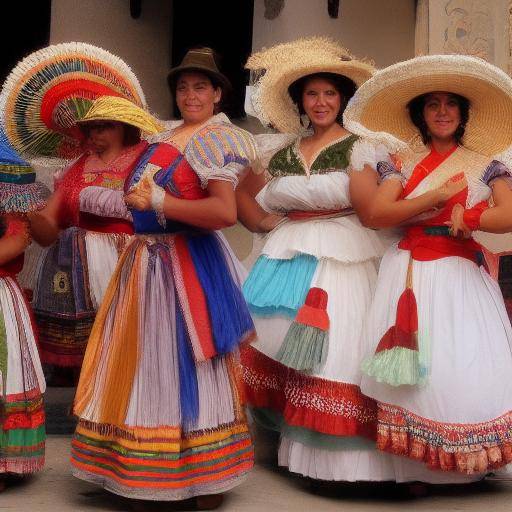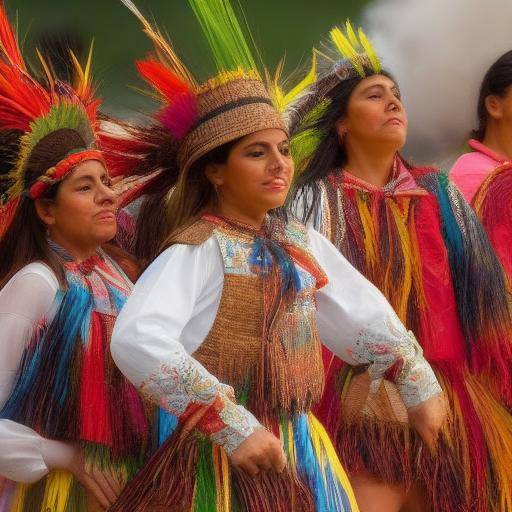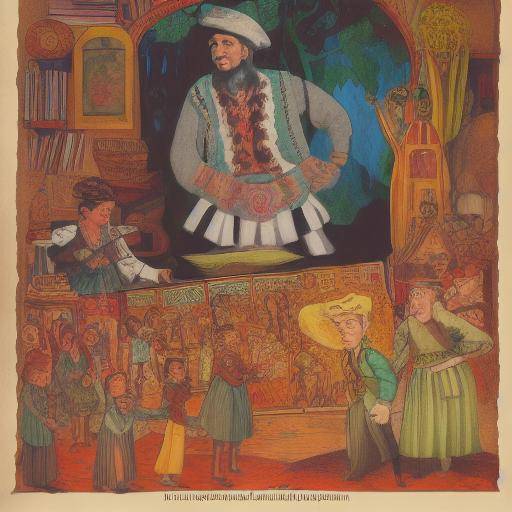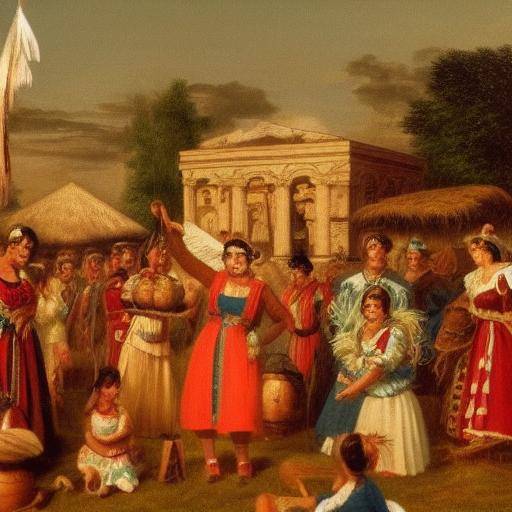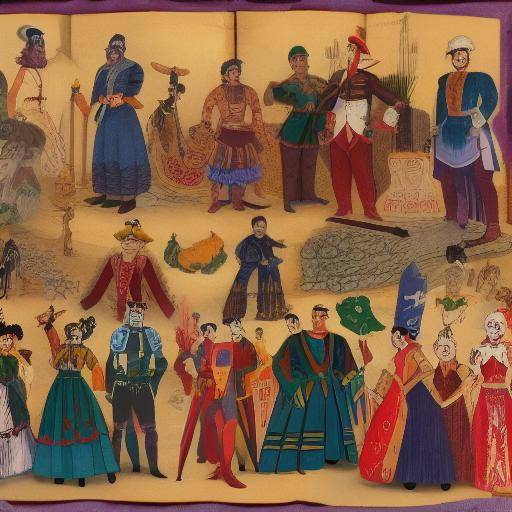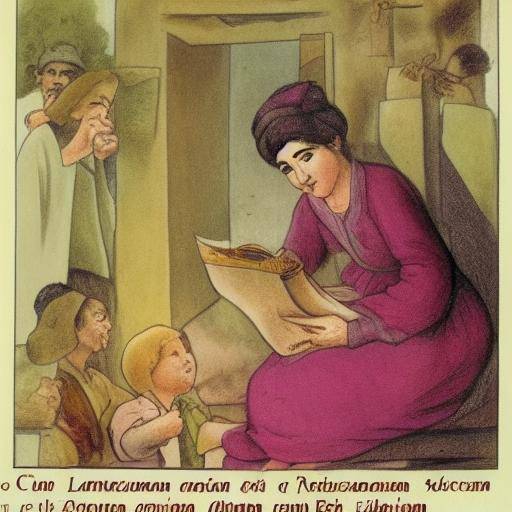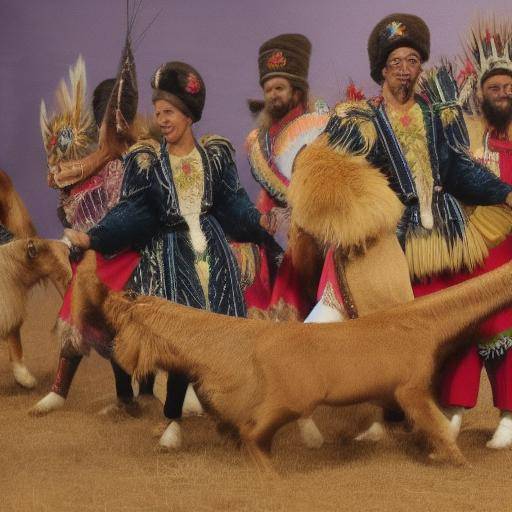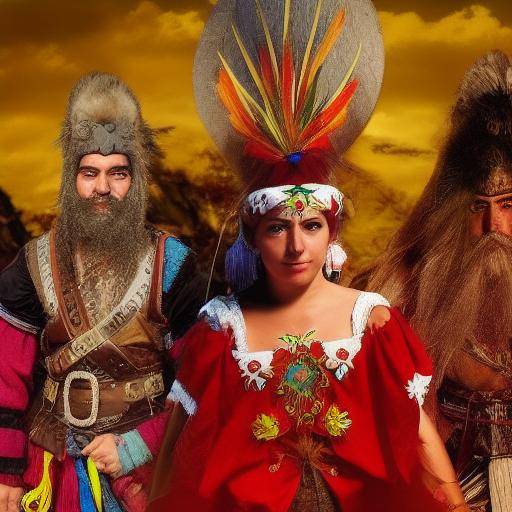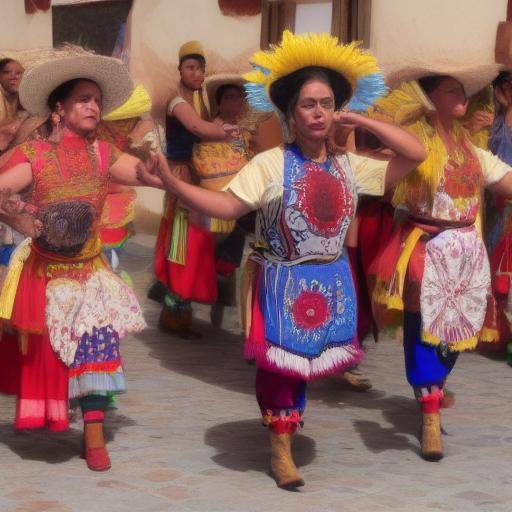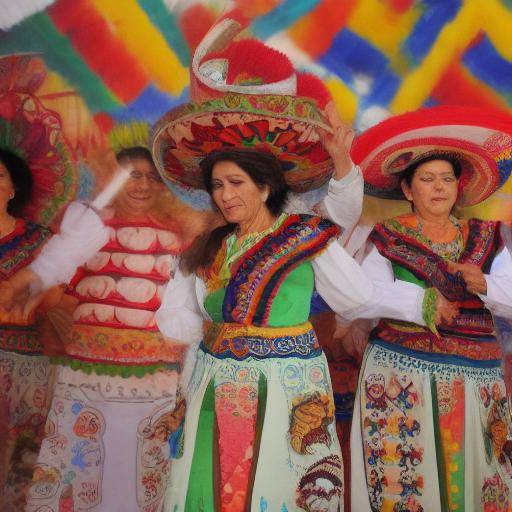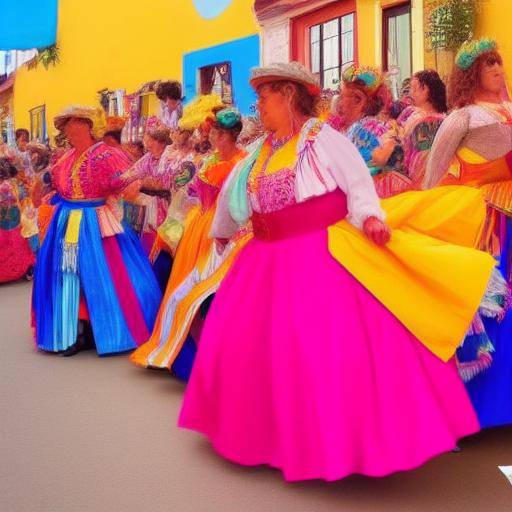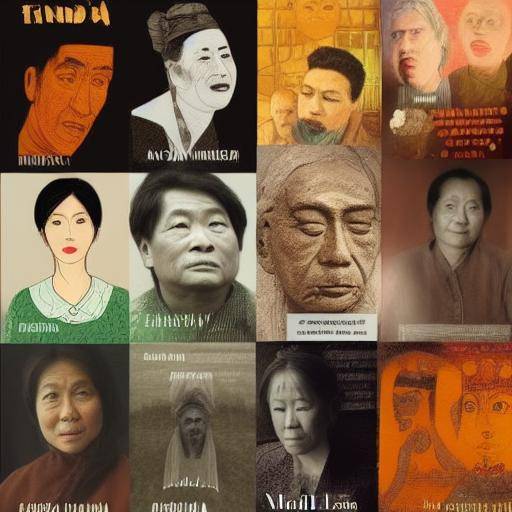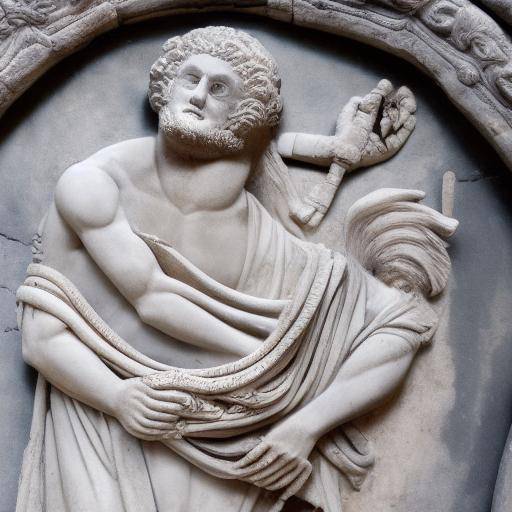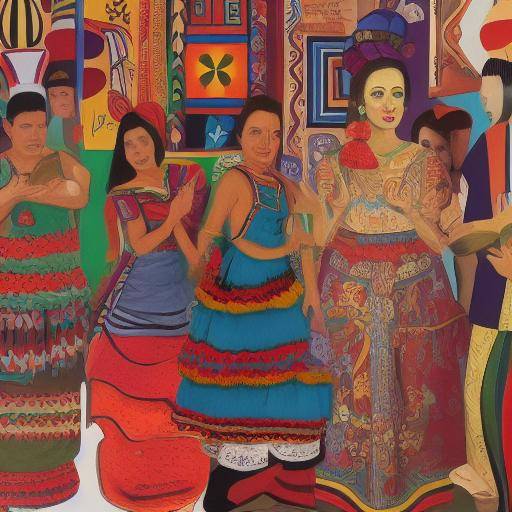
Latin American folklore has been a rich source of inspiration for contemporary literature. Through its myths, legends, music and traditions, this extensive cultural acquis has permeated the works of many writers, giving them a unique identity and providing the reader a window to the richness and diversity of Latin America.
Introduction
Latin American folklore is a treasure that encompasses the beliefs, customs, rituals and narratives transmitted from generation to generation. His influence in contemporary literature has been profound, offering writers an abundant and colorful scheme in which to immerse their stories. In this article, we will explore the intersection between Latin American folklore and contemporary literature, analyzing how these influences intertwine to shape works of great cultural and artistic relevance.
History and Background
Latin American folklore has its roots in pre-Columbian indigenous cultures, as well as in traditions brought by European and African settlers. This mix of influences has led to a vast repertoire of myths and legends that reflect the ethnic and cultural diversity of the region. From the stories of gods and heroes of Aztec and Mayan mythology to the legends of the conquest and resistance of the native peoples, Latin American folklore is a living testimony of the history and collective imagination of its inhabitants.
In contemporary literature, this collection of stories has been an inexhaustible source of inspiration. Writers like Gabriel García Márquez, Isabel Allende, Laura Esquivel and others have masterfully woven popular legends and traditions in their works, creating literary universes that transport the reader to the deepest of Latin American cultural roots.
Analysis in Deep
The inclusion of Latin American folklore in contemporary literature not only provides thematic wealth, but also enriches artistic expression and contributes to the preservation and dissemination of cultural heritage. From magical realism to the reimagination of ancestral myths, contemporary writers have found in Latin American folklore a vast narrative repertoire that allows them to explore the complexity of identity, the struggle for justice and resistance to adversity.
Exhaustive examination
The influences of Latin American folklore in contemporary literature extend through different genres and literary styles. From poetry to the historical novel, through the story and the story, Latin American folklore has permeated the various literary manifestations, giving an authentic and original voice to the writers of the region.
The exploration of popular traditions and legends has also opened spaces for intercultural dialogue and appreciation of diversity, promoting a sense of belonging and pride in Latin American communities. Contemporary literature, by integrating these influences, has contributed to the visibility and appreciation of Latin American cultural wealth.
Comparative analysis
By comparing Latin American folklore with contemporary literature, there is significant symbiosis. Folklore contributes to literature a timeless character and a connection to cultural roots, while contemporary literature revitalizes and resigns traditional narratives, adapting them to current contexts and offering new interpretations that resonate in the readers of the 21st century.
Practical Tips and Accessible Tips
If you are looking to immerse yourself in the wealth of Latin American folklore, we recommend you to begin with works like "Cien años de sol" by Gabriel García Márquez, "La casa de losspirits" by Isabel Allende or "Como agua para chocolate" by Laura Esquivel. These novels are excellent examples of how Latin American folklore intertwines with contemporary narrative to offer an enriching and captivating literary experience.
Conclusions and FAQs
Conclusions
Latin American folklore has left an indelible mark on contemporary literature, enriching works with its deep cultural resonance and its ability to weave stories that transcend time and space. This legacy will continue to inspire future generations of writers and readers, keeping alive the essence of Latin America in the literary universe.
Frequently asked questions
1. What is the role of Latin American folklore in contemporary literature?
Latin American folklore has served as a source of inspiration and as a means of preserving cultural identity in contemporary literature. Its myths, legends and traditions have enriched literary works, offering a unique and rooted perspective in the history and cultural diversity of the region.
2. What contemporary writers have stood out for integrating Latin American folklore into their works?
Authors like Gabriel García Márquez, Isabel Allende, Laura Esquivel, Juan Rulfo and Julio Cortázar, among others, have been recognized for their ability to incorporate Latin American folklore into their writings, creating works that transcend cultural and linguistic boundaries.
3. How does Latin American folklore contribute to the universality of contemporary literary works?
Latin American folklore, being the bearer of universal human values and experiences, allows contemporary literary works to connect with global audiences, transcending cultural and linguistic barriers to convey messages that resonate in humanity as a whole.
4. What current trends reflect the influence of Latin American folklore in contemporary literature?
Magic realism, the revaluation of indigenous traditions and the presence of mythological elements in contemporary narrative are trends that demonstrate the continued influence of Latin American folklore in current literature, showing its relevance and vitality in the literary landscape.
5. What are the challenges of integrating Latin American folklore into contemporary literature?
One of the challenges is to avoid respectful cultural appropriation and to ensure that the representation of folklore is carried out with sensitivity and respect for communities and their traditions. The challenge also lies in revitalizing traditional narratives in an authentic and relevant way in the contemporary context.
6. What is the importance of preserving and spreading Latin American folklore through contemporary literature?
The preservation and diffusion of Latin American folklore through contemporary literature contributes to the appreciation and respect for cultural diversity, strengthens the sense of identity and belonging in communities, and enriches the global literary landscape with authentic and meaningful accounts.
In conclusion, Latin American folklore enriches contemporary literature with its fascinating cultural wealth, offering countless narrative possibilities that connect with the essence of Latin America and transcend borders. This link between the past and the present, between the mythical and the everyday, remains an inexhaustible source of inspiration for literary creation, keeping alive the voice of its traditions in the modern world.

